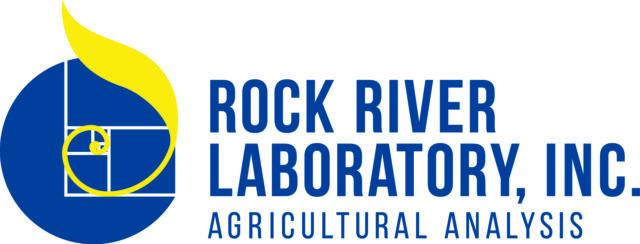During the Dark Ages, when I was in seventh grade at Heber School, I was required to memorize the Gettysburg Address. I puzzled over the meanings and archaic mentions of time.
I didn’t know what “four score” meant, and words like dedicate and consecrate and hollow were enigmas, but over the years, I have reflected again and again on the famous speech and have been moved to tears at its meaning.
Just recently, I taught a Citizenship in the Nation merit badge class to a group of Boy Scouts. We went through each requirement and talked about the founding of this great land and its inherent blessings of liberty. I talked to them of their sacred duty to become an informed citizen and to guard our freedoms. Finally, I quoted the Gettysburg Address and explained each part so that none could misunderstand. Then I asked them the question, “Why is the Gettysburg Address relevant today?”
Four score and seven years ago our fathers brought forth on this continent, a new nation, conceived in Liberty, and dedicated to the proposition that all men are created equal.
A score is 20 years; four score equals 80 years and add seven more years. The U.S. was only 87 years old. Perhaps there were those still living who had witnessed the founding of America. Perhaps their grandfathers, uncles, fathers or brothers had given their lives in the Revolutionary War. Certainly every family realized the cost of founding a nation. It had to be a terrible blow to those who had sacrificed so much to find themselves thrust again into another war.
Of course, the young people would blink at the wonder of the uniforms and be caught up in the guns, the camaraderie of armies and marching, but the older generation would remember the loss of loved ones and the empty houses. They knew the price, even if it was paid by a relative.
Now we are engaged in a great civil war, testing whether that nation, or any nation so conceived and so dedicated, can long endure. We are met on a great battlefield of that war. We have come to dedicate a portion of that field, as a final resting place for those who here gave their lives that that nation might live. It is altogether fitting and proper that we should do this.
Back in the days when politically correct was equal to what God thought was correct, Americans used to dedicate public buildings, schools, churches and cemeteries. This speech was given at the Gettysburg Cemetery, where thousands upon thousands of young Americans had died in defense of their beliefs.
It must have been an ominous and solemn occasion for those who gathered there. Some probably came to honor the lost son, brother or father who lay cold under the ground. Lincoln’s thoughts were not on his campaign that was going on at the time. He was not concerned about if people thought he was the right man for the job because of his flowery language and ability to verbally impress his voters. His heart was with the people and those who had sacrificed their lives. His soul yearned to save the fledgling nation from destruction. Oh, that we could find politicians today with the same focus and purpose!
But, in a larger sense, we cannot dedicate – we cannot consecrate – we cannot hallow – this ground. The brave men, living and dead, who struggled here, have consecrated it, far above our poor power to add or detract.
Lincoln’s humble heart realized that nothing humanly possible could bring the young soldiers to life. He knew that nothing he could say would heal the wounds ripped in the hearts of those who loved the soldiers who were dead, but he recognized that their sacrifice was sacred. They had given their all to preserve freedom. He also knew the war was not over. He knew that others would die, perhaps some who were in attendance that day, would give their lives. There was no hollow sound of, “What’s in it for me?” which so common in political speeches today. He was a patriot who had placed his hand in the hand of God.
The world will little note, nor long remember what we say here, but it can never forget what they did here.
The irony of this statement is heartwarming. Lincoln’s speech was memorized and shared by thousands long after his death. Someday perhaps the progressive history re-writers will strike it from the record, but for now, it lives as a monument to American freedom.
It is for us the living, rather, to be dedicated here to the unfinished work which they who fought here have thus far so nobly advanced. It is rather for us to be here dedicated to the great task remaining before us – that from these honored dead we take increased devotion to that cause for which they gave the last full measure of devotion – that we here highly resolve that these dead shall not have died in vain –
Lincoln’s heart was with the preservation of his country, and people loved him for it. He knew the road to reconciliation was not going to be easy. He knew that when blood is shed, anger mounts and vengeance reigns in the heart of the ones who are wronged, whether they are on the side of justice or not. Thousands upon thousands of hearts had been damaged to the point of no return. Only God can heal such hurts. War can never do it. The “great task remaining before them” was daunting.
More lives would be lost. More hearts damaged before the deaths of these young men could be vindicated. Lincoln knew that the war must be fought in order to save the Union, but how could he know that he would be victorious? How could he know that his “cause was just”? God spoke to his heart as He does to all who seek Him in humility and prayer.
Some will say, why did Lincoln not just allow the South to build their own country and live as sister countries for the rest of time? Lincoln did not want a border war to go on for centuries. He did not want invasions and unrest to continue forever. He wanted peace. He wanted freedom for all men, including the African American slaves. More than that, God wanted a united group of states, not two sovereign countries. We cannot imagine what it would be like to be divided and live next door to our enemies, because the Civil War brought us together. Wounds were healed, hearts were softened and unity was restored.
… that this nation, under God, shall have a new birth of freedom – and that government of the people, by the people, for the people, shall not perish from the earth.
When I ask my Boy Scouts why has this speech lived for so long or why is this speech relevant today, the final line of the speech jumps out as the answer to the question. Will this nation survive?
The news rumbles with the rumors of rebellion and change. So many leaders of our country are not listening to the voice of God; they are listening to the polls and the political analyzers. They stick their finger in the air to see which way the political winds are blowing before they write their speeches and decide what line they are going to weave and promote. Where are the Lincolns? Where are those who have the country’s best interest at heart?
Where are those who will defend the Constitution they pledge to uphold? Do we have a “government of the people, by the people, for the people,” or do we have a country of the government, by the government, for the government?
Back in the Dark Ages when I was in seventh grade, I memorized the Gettysburg Address. Over the years, I have come to love that speech with the same love I have for my country. When I see the flag waving, I think of those who gave their lives that I might have the freedoms I enjoy. When I watch the news, I wonder how long my beloved country will survive the tyranny that takes place every day. I have hope that God will intervene and will right the wrongs. I hope that I will stand among the patriots of tomorrow who did all that I could to preserve freedom for my children and grandchildren. PD
“Freedom is a fragile thing and is never more than one generation away from extinction. It is not ours by inheritance; it must be fought for and defended constantly by each generation, for it comes only once to a people. Those who have known freedom and then lost it have never known it again.”
—Ronald Reagan, from his first inaugural speech as governor of California, January 5, 1967







